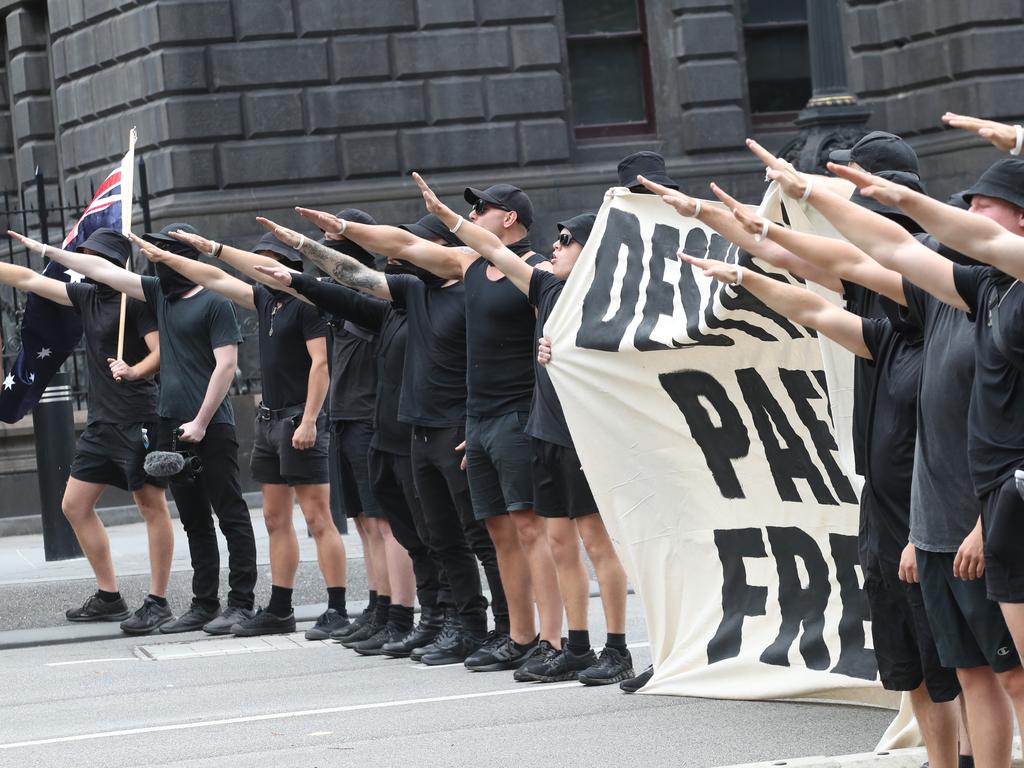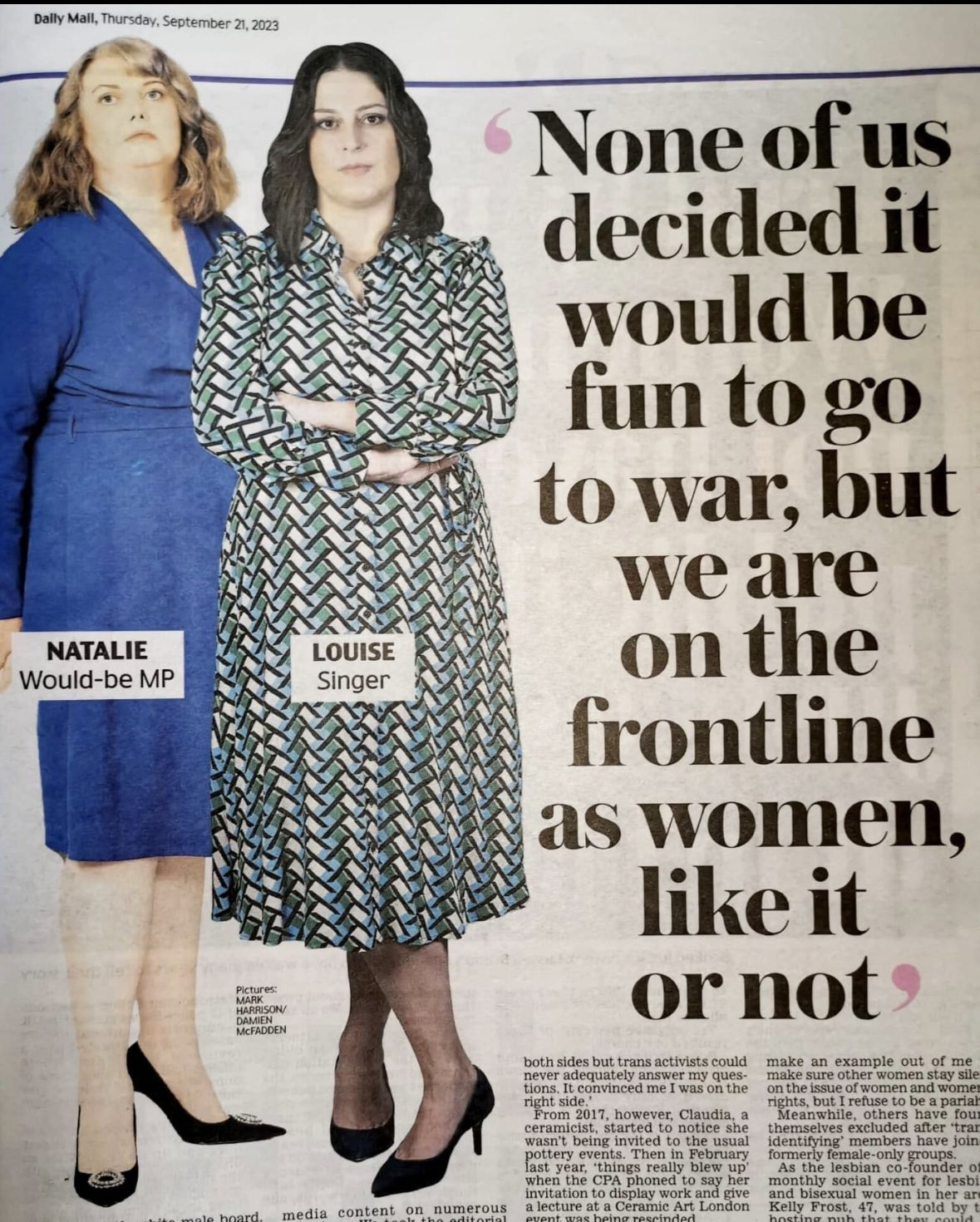This week, the vitriol machines that used to be civil enough to warrant calling them social media platforms have been ramping up in rancour after a musician, who openly declared her ambivalence towards the transphobic label being affixed to her, appeared in a Daily Mail article on how ordinary women are being “cancelled for putting themselves on the front line of the gender war”.
Ironically, the headline which proclaimed, “First they came for JK Rowling, but that wasn’t enough”, was penned in the same vein as Martin Niemöller’s ‘First They Came…” poem, which was written after sympathising with Nazi ideas and supporting radically right-wing political movements but later saw sense after enduring eight years in Nazi prisons and concentration camps. That is just the tip of the cognitive dissonance iceberg for the people ‘going to war’ with one of the most marginalised and vulnerable subsets of society.
Before we get into how the music industry has a right and a duty not to propagate and exacerbate the hysteria and hate of the anti-trans moral panic clusterfuck, which echoes the themes that have always been utilised to demonise minorities, a brief history of how we got here is necessitated to lift the thin veil of virtue that rallying against trans people is a righteous act to protect women and children.
What Triggered the Moral Panic Which Fuelled the TERF Movement?
In 2022, Vice revealed that transphobic hate crimes have tripled in the last five years due to factors which interlink the mainstream media and far-right provocateurs and followers.
It is no coincidence that there was a 400% increase in disproportionately negative coverage of ‘trans issues’ from 2014 to 2019. For context, most moral panics are media-driven. And now that many mainstream figureheads have independent platforms to push their narratives into the mainstream consensus, the extreme-right activists are only becoming more emboldened. Funny how the oh-so-impressionable alt-right thinks they’re the freedom thinkers/fighters whereas the left are cultish sheep, isn’t it?
Comedians pushing anti-trans narratives in their comedy specials gave your average, otherwise amicable, members of society the opportunity to enjoy transphobia in a cosy and jovial way. After all, they’re *just* jokes – jokes which normalise prejudiced contempt. And it wasn’t just the likes of Ricky Gervais and Dave Chapelle who were guilty of embedding transphobia in society. The documentary Disclosure, which aired on Netflix in 2020, documents how damaging the portrayals and depictions of transgender people have been on the trans community. Even though the intent of every comedian or script writer may not have been overtly malicious, that didn’t prevent them from supporting a global reactionary movement. They still reinforced far-right tropes and fuelled the Trans Exclusionary Feminist, LGB Alliance and Gender Critical fires.
Today, transphobia isn’t just an idea that is floating around out there. It is an organised agenda hell-bent on demonstrating that transgender people aren’t welcome in society. The main drivers of the hatred seem oblivious to the paradoxical nature of their fear; how can a small minority with little institutional power pose a risk to the majority?
It’s essential to understand that “moral panics” aren’t just spontaneous outpourings of public anxiety but can be shaped and driven by various stakeholders for different purposes. The anti-trans moral panic is no exception and is rooted in misunderstandings, prejudice, and strategic sociological manoeuvring.
Along with the increased visibility of trans people, the bathroom bills in the US in the 2010s, the televised debates on healthcare, sports and self-ID, and the politicisation of transgender rights during the US mid-elections, the media has created a perfect clickbait transphobia storm.
Just as gay men were routinely portrayed as paedophiles in the 80s when they got roped into the sordid gay conspiracy theory, the same is happening to trans people while they are fighting for their rights and access to services and healthcare. To signify just how much of a worrying epoch we are in, earlier this year, Neo-Nazis rocked up to an anti-trans rally in Melbourne and started to give Nazi salutes. Funny how the quote “Tell me what company you keep and I will tell you what you are” springs to mind.
Transphobia and the Music Industry in 2023
Given the prevalence of transphobia in 2023, it was only a matter of time before it infiltrated and started to defile the music industry. Thankfully, unlike streaming services such as Netflix, which is happy to platform transphobic comedians who can’t even wrap their heads around the concept of gender dysphoria, let alone how difficult it is for trans people to get on with their lives in peace, the music industry’s view of transphobia is still largely dim.
Last week, the BBC stood firm on its decision to air the single, They/Them, by London’s queer punk outfit Dream Nails and didn’t bow to the pressure from listeners to remove it due to the inclusion of the lyrics “kick TERFs all day”. Since the 70s, punk has always been at the vanguard of the vital backlash against far-right extremism; take the Dead Kennedy’s track, Nazi Punks Fuck Off, as the perfect example. Nazi skinheads weren’t all too happy when it debuted in 1983, just as TERFs are appalled that their malice is being met with retaliation.
In the recent Daily Mail article, which attempted to portray women as the victims of their transphobic hate, Louise Distras bemoaned the journalists, radio stations, and her booking agency who rightly refuse to have anything to do with her for the self-piteous bile spewed across her social media platforms (anyone got a tiny little violin I can borrow?). She also attempted to align herself with Roisin Murphy, who aired transphobic comments, then later had the sense to revoke them and apologise with a statement on how fixed views on the treatment of trans children aren’t helpful. But Distras is standing firm on her position and attempting to rally the transphobic troops that will continue to support her career.
Depressingly, she’s not short of support; there are still plenty of people fooled by her guise of an incessantly victimised artist as she continues her attacks on the transgender community, who are battling with self-stigma, barrages of microaggressions, and far more serious instances of physical and emotional abuse which lead to being disproportionately affected by suicidal ideation. Earlier this year, a study revealed that nine in ten young trans adults in the UK have suicidal thoughts. So much for that ‘what about the kids?!’ trope TERFs are so fond of.
Trans people are in no way attempting to take away the “hard-won rights that women have fought for”, especially not in the music industry, which is one of the main arguments of Distras. Gender discrimination and instances of sexual assault and harassment are, of course, major issues for women in the music industry, but as a recent study by TuneCore and Believe illustrated, trans people are victimised even more so than women. 34% of women in the survey reported instances of sexual assault and harassment, for trans people, that percentage rose to 42%.
In the digital era of music, when artists can easily solely rely on the support of their fans, and there’s no shortage of transphobes looking for artists who can soundtrack their prejudice, silencing right-wing extremist views is harder than what it would have been a few decades ago. This is why this is a crucial time for everyone to question their media-implanted grievances with trans people and start being an ally, sooner rather than later to avoid the same retrospective regret as Martin Niemöller…
Article by Amelia Vandergast




